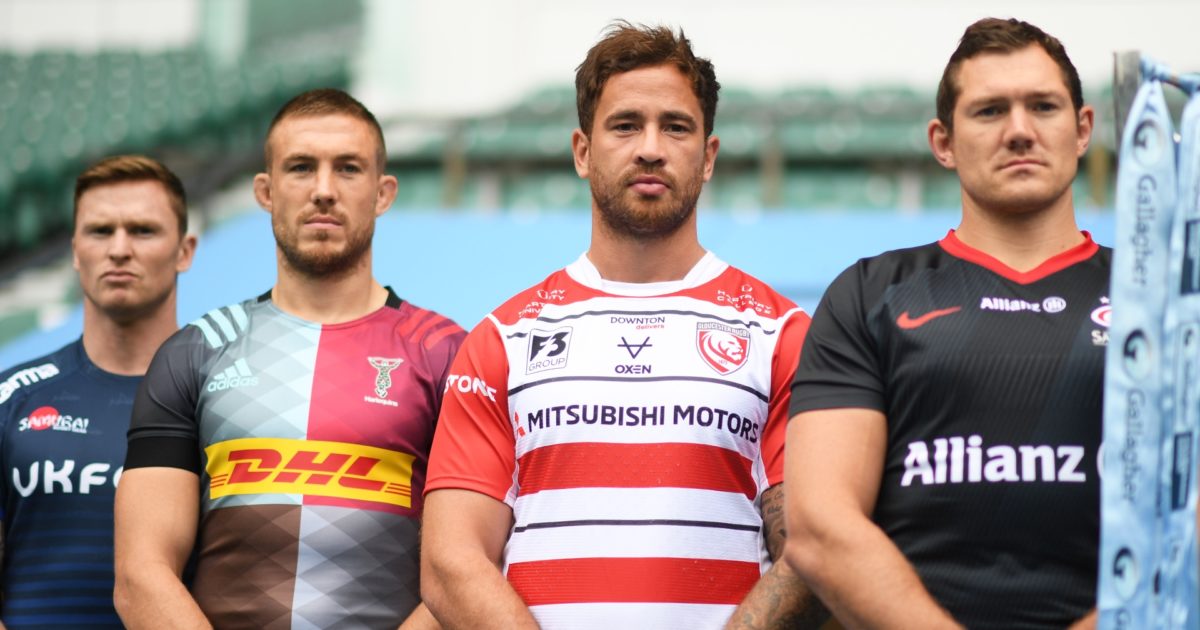RPA statement: 'It's a sad day in the history of rugby'

The increasingly worrying standoff between Premiership clubs and the Rugby Players’ Association took a turn for the worse on Friday with the RPA accusing clubs of making factually incorrect comments regarding the row over the 25 per cent salary cut for players and other allegations.
Fears about the game’s finances accelerated earlier this week when the top-flight’s clubs agreed to cut the league’s salary cap on senior wage bills from £6.4million to £5m from the start of the 2021/22 season without consulting the RPA. This happened amid concerns that the temporary 25 per cent salary cut agreed at the start of the pandemic will now be made permanent.
In a statement released on Friday, which was not circulated through the usual Premiership Rugby channels, the clubs accused the RPA of sowing division and creating uncertainty by allegedly threatening strike action in midweek.
“We are disappointed by the position taken by the Rugby Players’ Association at a time when a mutual understanding of the challenges ahead is required,” read the clubs’ statement. “Player welfare is of high priority to the clubs, and our growing concern is that individuals are not receiving appropriate advice at this current time.
“For example, the RPA urging players not to negotiate a compromise, privately threatening strike action and publicly opposing reductions without offering any feasible solutions has resulted in a predicament that suits nobody – not the league, the clubs, the players’ union or the players themselves. Rather than provide support for their members, the RPA have served to sow division and create uncertainty during a critical period that could define the future of professional rugby in the UK.”
Economic realities bite https://t.co/IS3ZgHy9Rl
— RugbyPass (@RugbyPass) June 9, 2020
This statement prompted the RPA to later issue a stinging rebuke of the allegations. “In relation to the statement released by the Premiership clubs earlier today, the RPA is compelled to address the factually incorrect comments contained within and ensure that our members and all the game’s stakeholders, including supporters, are clear on the facts.
“Our response to the specific issues are below: It is a sad day in the history of rugby that the game finds itself in this position. PRL and the clubs have decided to publicly criticise the RPA and, by doing so, personally attack players and their representatives. Throughout this crisis, both the RPA and players have been open to a collaborative and positive solution to address the long-term financial viability of the game.
“Our players’ board met on May 26 to receive a formal proposal from PRL regarding the future of the game. In reality, the proposal was singularly for immediate and permanent pay cuts. Our board voted unanimously against that proposal. To suggest there have been any other agreements in relation to permanent pay cuts is a complete fabrication.
“On April 22, a non-disclosure agreement was sent to the RPA but categorically did not include any financial information and no deadline for response. To reiterate, at no point has the RPA been provided with any detailed financial information from PRL or the clubs. This NDA was not signed and could never be without RPA players board approval. As already stated above, our board voted unanimously against immediate and permanent pay cuts.
“PRL and their member clubs are fully aware that, at the same meeting, the players board unanimously voted for a counter-proposal of independent mediation, chaired by a leading QC through Sports Resolutions. This counter proposal remains unanswered and is a resounding example of the players being open to a professional, collaborative and constructive dialogue to help address the future of the game. The offer remains on the table.
“The changes to the salary cap, as announced on Wednesday, and the arbitrary June 18 deadline for contracts to be ‘existing’ were passed with no consultation of players. That has led to a significant number of our members faced with immediate contractual decisions to make about their long-term futures in order to facilitate this change for the clubs. This approach exposes the lack of governance within the Premiership, as recently highlighted by Lord Myners’ independent review.
“Some clubs are trying to entice or crowbar players into signing longer contracts with 25% of their salary not counting in next season’s cap”
– Damian Hopley of @theRPA gives @chrisjonespress the latest update in messy English Premiership row??? https://t.co/PXEhjP0DbN
— RugbyPass (@RugbyPass) June 10, 2020
“The RPA have never threatened strike action and would not recommend this as an appropriate course of action. Regarding the welfare of players, PRL states that there is no intention to reduce academy salaries of those players at the low end of the spectrum. However, there is evidence that this has already happened at some clubs. The RPA have acted – and will continue to act – in the best interests of our player membership and support their legal rights.
“The players are a vital part of the game and deserve to be treated with respect, which is a key value of rugby. The current unreasonable approach that the clubs are taking will continue to cause substantial long-term damage to player and club relations going forward. The clubs’ statement ends with a call for mutual understanding and respect, both require reciprocation. Our offer of mediation remains open.”
























































































